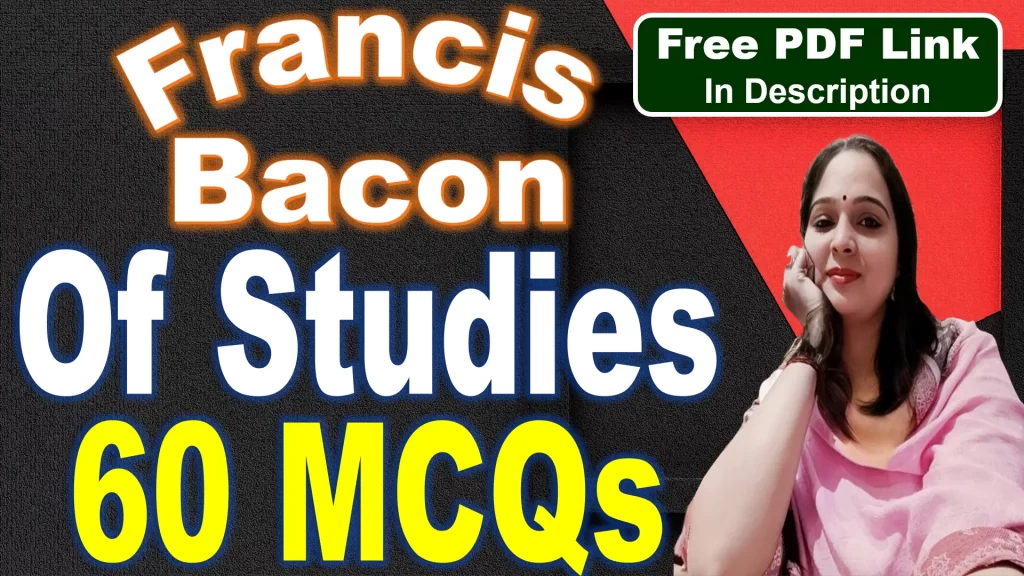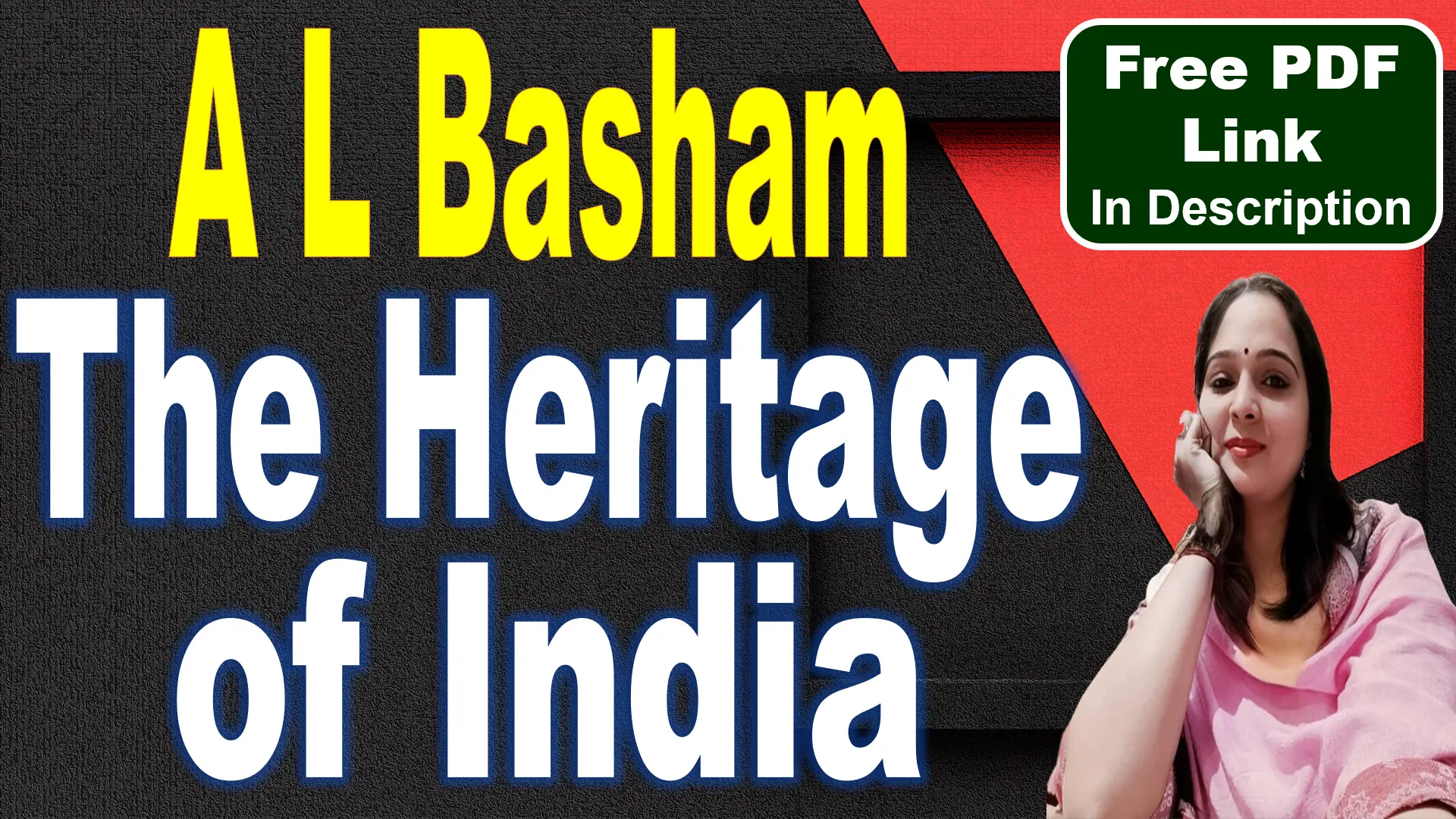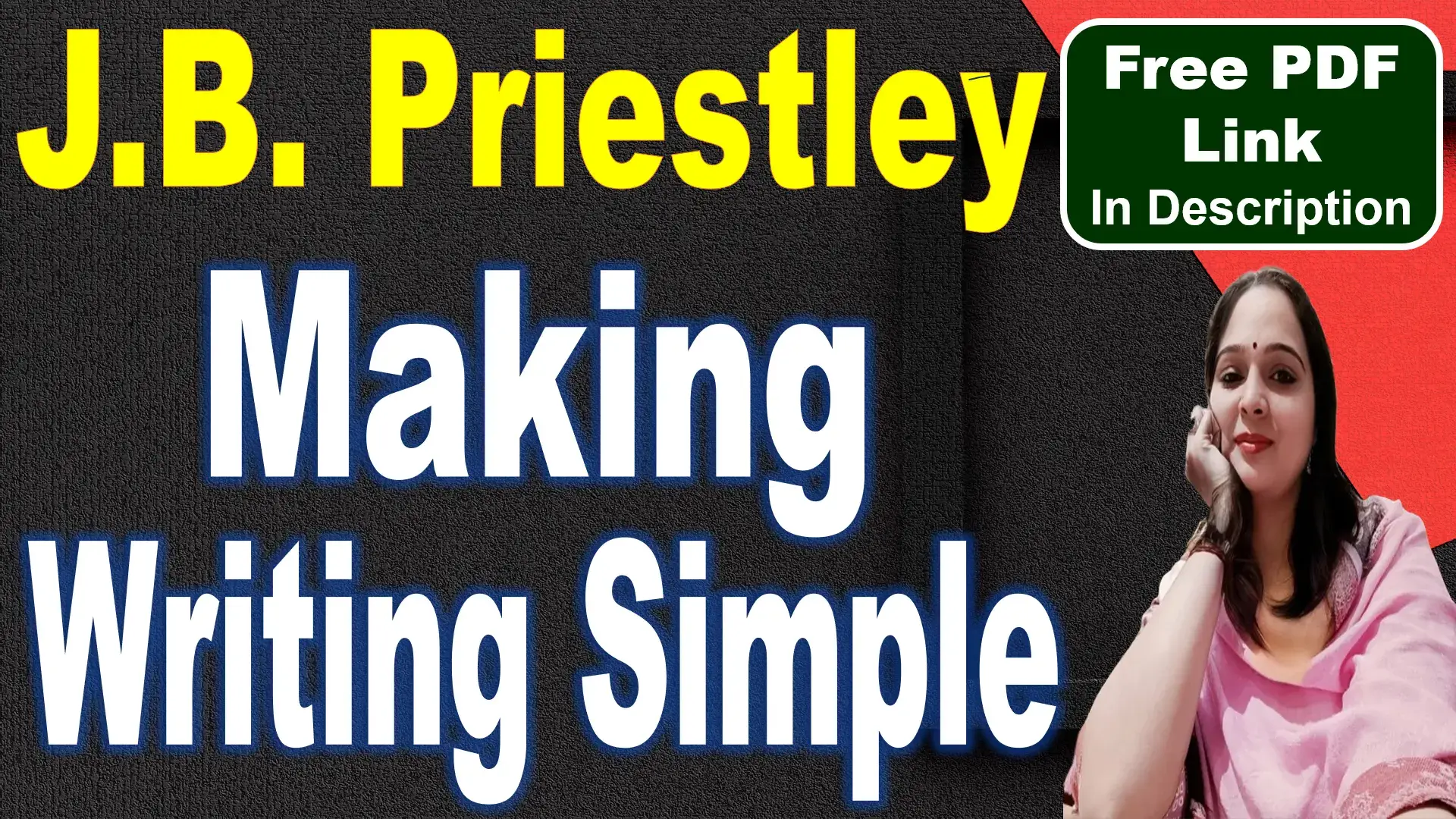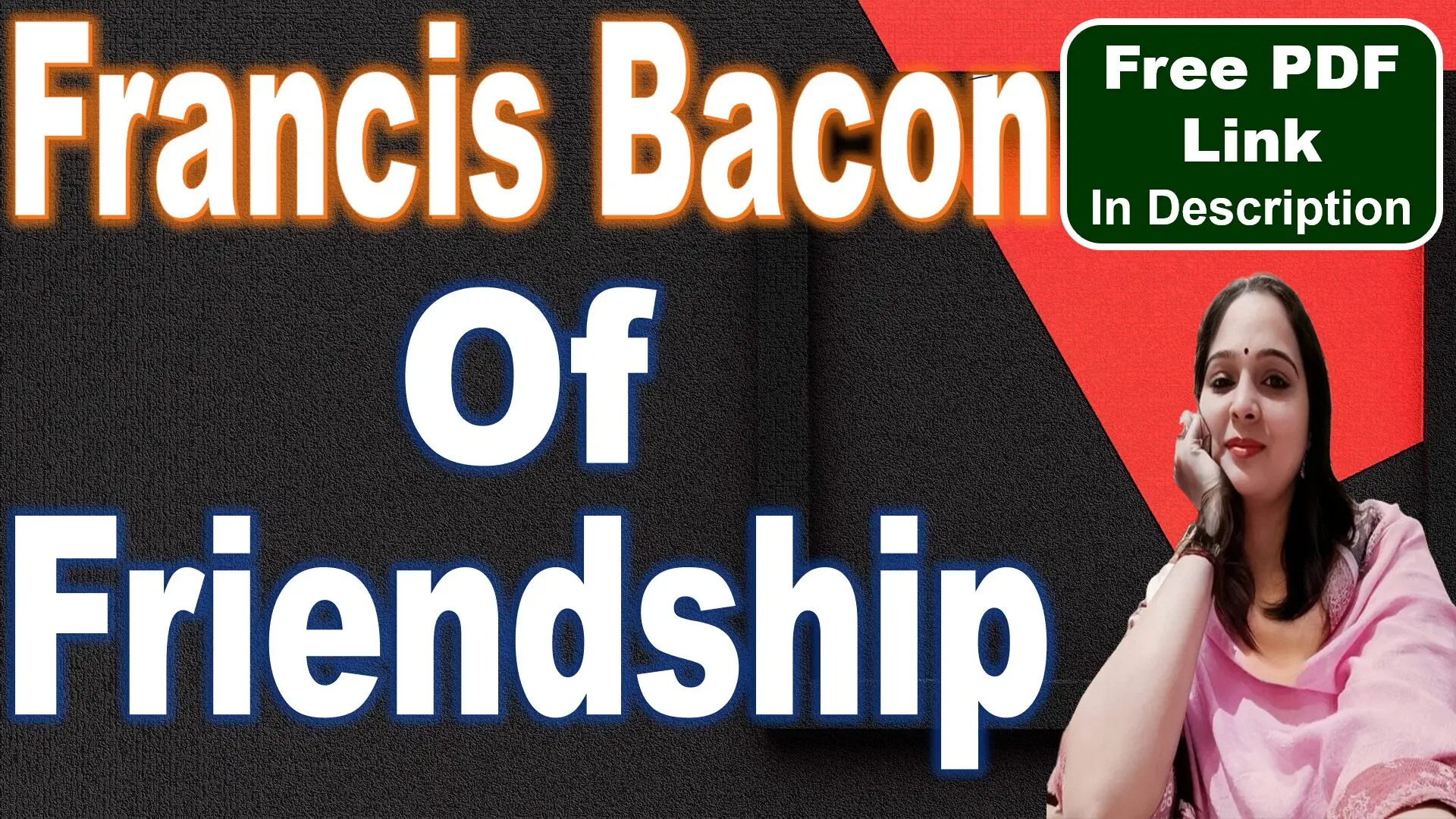
21. According to Bacon, what happens when studies are relied on wholly for judgment?
A. They lead to pretentiousness
B. They lead to pedantry
C. They lead to wisdom
D. They lead to sloth
Answer: B (They lead to pedantry)
Explanation: Bacon criticizes relying entirely on studies for judgment, as it fosters pedantry—an overly academic and impractical approach to life. Scholars who solely base their decisions on theoretical knowledge often fail to apply it to real-world scenarios, making their judgments rigid, detached, and impractical. Experience must balance studies for well-rounded decision-making.
22. Which skill does Bacon associate with writing?
A. Wisdom
B. Precision
C. Readiness
D. Confidence
Answer: B (Precision)
Explanation: Bacon states that writing develops precision in thought and communication. Writing forces individuals to structure their ideas clearly, refine arguments, and eliminate ambiguities. This process not only enhances clarity but also ensures accuracy, making writing a tool for intellectual discipline and effective expression.
23. How does Bacon describe distilled books?
A. Comprehensive
B. Flashy things
C. Thought-provoking
D. Philosophical
Answer: B (Flashy things)
Explanation: Bacon compares distilled books, or summaries, to distilled water, which he describes as “flashy things.” Such books may provide surface-level insights but lack depth and substance. They fail to convey the full richness of the original text, making them suitable only for less critical topics or quick references, not for deep understanding.
24. What does Bacon say about men who confer little?
A. They need a present wit
B. They need great memory
C. They need cunning
D. They need knowledge
Answer: A (They need a present wit)
Explanation: Bacon argues that men who do not engage in discussions (conference) must rely on sharp wit to navigate interactions. Conferencing develops readiness, allowing individuals to think on their feet and respond effectively. Without this habit, they must depend on quick thinking to appear knowledgeable and adapt in real-time.
25. What effect does poetry have on men, according to Bacon?
A. Makes them wise
B. Makes them witty
C. Makes them moral
D. Makes them logical
Answer: B (Makes them witty)
Explanation: Bacon associates poetry with enhancing wit, which he defines as creativity, imagination, and the ability to express ideas playfully. Poetry sharpens mental agility, enabling individuals to perceive connections, craft metaphors, and approach problems with inventive solutions. This quality of wit enriches both conversation and thought.
26. What is the main benefit of studying natural philosophy, as per Bacon?
A. Subtlety
B. Morality
C. Deep understanding
D. Rhetorical ability
Answer: C (Deep understanding)
Explanation: Bacon believes that natural philosophy (science) fosters a profound comprehension of the world. By exploring nature’s principles and phenomena, it deepens intellectual inquiry and cultivates a contemplative mind. This subject encourages a systematic and thoughtful approach to understanding the complexities of life and the universe.
27. What remedy does Bacon suggest for a mind that cannot analyze matters?
A. Study mathematics
B. Study poetry
C. Study lawyers’ cases
D. Study logic
Answer: C (Study lawyers’ cases)
Explanation: Bacon recommends studying lawyers’ cases for individuals who struggle with analyzing issues or synthesizing evidence. Legal studies train the mind to construct arguments, compare scenarios, and derive conclusions systematically. This practice develops critical thinking and enhances one’s ability to examine multiple perspectives.
28. Bacon compares the benefits of studies to remedies for:
A. Physical diseases
B. Mental disorders
C. Social problems
D. Financial issues
Answer: A (Physical diseases)
Explanation: Bacon draws an analogy between the corrective power of studies and physical exercises that cure bodily ailments. Just as specific exercises target physical weaknesses, studies address intellectual or mental deficiencies. For example, studying logic improves reasoning, while studying mathematics sharpens focus, making studies a mental therapy.
29. What does Bacon imply by “Histories make men wise”?
A. They develop philosophical thinking
B. They enhance decision-making skills
C. They improve creativity
D. They strengthen memory
Answer: B (They enhance decision-making skills)
Explanation: Bacon highlights history’s role in teaching wisdom by exposing individuals to past events, strategies, and outcomes. This knowledge enhances decision-making, as understanding historical patterns allows people to predict consequences, learn from past successes and failures, and make informed choices in similar situations.
30. According to Bacon, studies themselves:
A. Teach their own use
B. Do not teach their own use
C. Always lead to success
D. Are better than experience
Answer: B (Do not teach their own use)
Explanation: Bacon asserts that studies alone do not teach practical application. Instead, they provide theoretical knowledge, which must be coupled with observation and experience to derive wisdom. This distinction emphasizes that raw knowledge from books needs real-world contextualization to be useful and meaningful in life.





